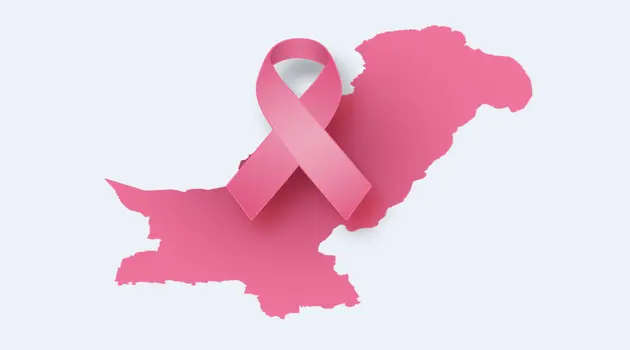Breast cancer is a global health concern affecting millions of women each year. In Pakistan, this issue takes on a unique dimension due to cultural factors that often discourage women from seeking medical attention for breast-related concerns. In this article, we will explore the critical importance of breast cancer awareness in Pakistan, shed light on the tendency within desi families to downplay women’s health issues, and emphasize why ignoring the signs of breast cancer can have devastating consequences.

In Pakistan, like in many other South Asian countries, societal norms and cultural expectations often place women’s health on the back burner. Desi families may tend to downplay or dismiss women’s medical concerns, especially when it comes to sensitive issues such as breast health. This cultural reluctance to discuss women’s health openly can lead to delayed diagnosis and treatment, ultimately jeopardizing lives.
Ignoring the Signs
One of the primary reasons why breast cancer awareness is vital in Pakistan is the tendency to ignore or misinterpret the signs and symptoms of this disease. Early detection of breast cancer significantly improves the chances of successful treatment and survival. However, in many cases, women dismiss breast lumps, pain, or changes in breast size as normal or unrelated to cancer. This ignorance can have dire consequences, as breast cancer is a leading cause of cancer-related deaths among Pakistani women.
Cultural Stigma
Breast cancer awareness in Pakistan is further hindered by the stigma associated with discussing women’s health openly. Many women fear that speaking out about breast-related issues will bring shame upon their families or themselves. This fear of stigma can discourage women from seeking timely medical care and can result in breast cancer diagnoses at advanced stages, making treatment more challenging and less effective.
Lack of Education
Another significant factor contributing to the lack of breast cancer awareness in Pakistan is the lack of education and awareness campaigns. While organizations like Pink Ribbon Pakistan have been working tirelessly to educate and screen women for breast cancer, there is still a long way to go. Many women in rural areas may not even be aware of breast cancer or its symptoms, further exacerbating the problem.
Changing the Narrative
To combat the issue of breast cancer ignorance in Pakistan, it is essential to change the narrative around women’s health. Families and communities must be encouraged to prioritize the well-being of their women, including discussing breast health openly. Medical professionals, community leaders, and educators should collaborate to develop culturally sensitive awareness campaigns that reach even the most remote areas.

Self-Examination and Regular Check-ups
Empowering women with knowledge is a critical aspect of breast cancer awareness. Pakistani women should be educated about the importance of self-breast examinations and the need for regular clinical check-ups. Self-examinations can help women identify changes in their breasts early, while regular clinical check-ups can detect abnormalities that may not be apparent through self-examination alone.
Breast cancer awareness in Pakistan is a matter of life and death for countless women. Cultural factors, stigma, and ignorance have contributed to a climate where breast cancer is often diagnosed at advanced stages, reducing the chances of successful treatment. It is vital to break the silence surrounding women’s health issues and promote open dialogue within desi families and communities. With education, early detection, and the removal of stigma, we can make progress in the fight against breast cancer in Pakistan, ultimately saving lives and ensuring a healthier future for all women.



















